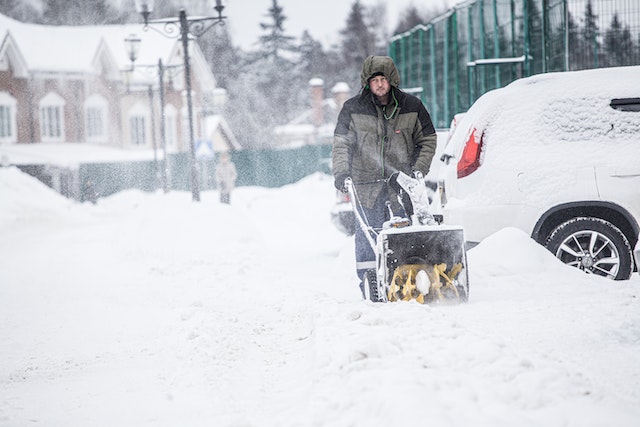Home Renovation Insurance
February 9, 2023The Ultimate Guide to Trampolines for Homeowners
February 13, 2023Preparing For A Winter Storm
When a winter storm hits, preparedness is more than just going to the store. Here's how to prepare your money for a hurricane.

Winter has officially arrived — and just in time for the holidays, according to the National Weather Service, which predicts a major winter storm in the Midwest. In the days running up to Christmas, much of the country can anticipate heavy snowfall, high winds, and numerous sorts of occasionally severe winter weather.
When a winter storm hits, you might believe that preparing is a fast trip to the supermarket before the bread and milk run out. However, a winter storm can cause company closures, serious automobile accidents, property damage, and power outages. That's why it's critical to plan ahead of time for how you'd weather a terrible winter storm financially.
Examine Your Insurance Policy.
According to Aon statistics, winter storm damage accounted for a record-breaking $15.5 billion in insured losses in 2021. That was the year Texas was slammed by winter storms that knocked out electricity, reminding Americans that snow, ice, and freezing temperatures can wreak the most damage when they strike in the most unexpected locations.
What type of harm are we discussing? If a frozen water pipe bursts, it might flood your house and destroy your belongings. Ice on your roof might cause water to flow into your home. A patch of black ice on the roadway might cause a collision, resulting in costly auto repairs and medical claims.
As a result, having enough insurance coverage after a snowstorm or ice storm is crucial. But don't put off figuring out what's covered or how to submit a storm damage insurance claim until it's too late. Updating your plans or inquiring about your coverage before to a disaster will save you time, energy, and money when you need them the most.
Prepare Your Credit For A Disaster.
Winter storm damage, like other natural catastrophes, may have a long-term financial impact. If you fail to pay a payment or incur large costs on your credit card, your credit score may suffer. You may take precautions now to safeguard your credit in the case of a natural disaster.
For example, having extra cash on hand might alleviate the stress of having to replenish food or stay in a hotel if your home's electricity goes out for an extended period of time. Consider contributing to your emergency fund if you have one. If you don't have one, make it a priority to create one.
Create An Emergency Finance Pack.
Along with snow shovels, flashlights, and non-perishable food, you should have easy access to critical papers in case of an emergency. Things happen unexpectedly, and you don't want to be rushing for contact information or medical documents as you depart your freezing house. Compiling and keeping records that assist you in contacting insurance companies, obtaining medical care, or proving your identification may all aid in your recovery following a natural catastrophe.
